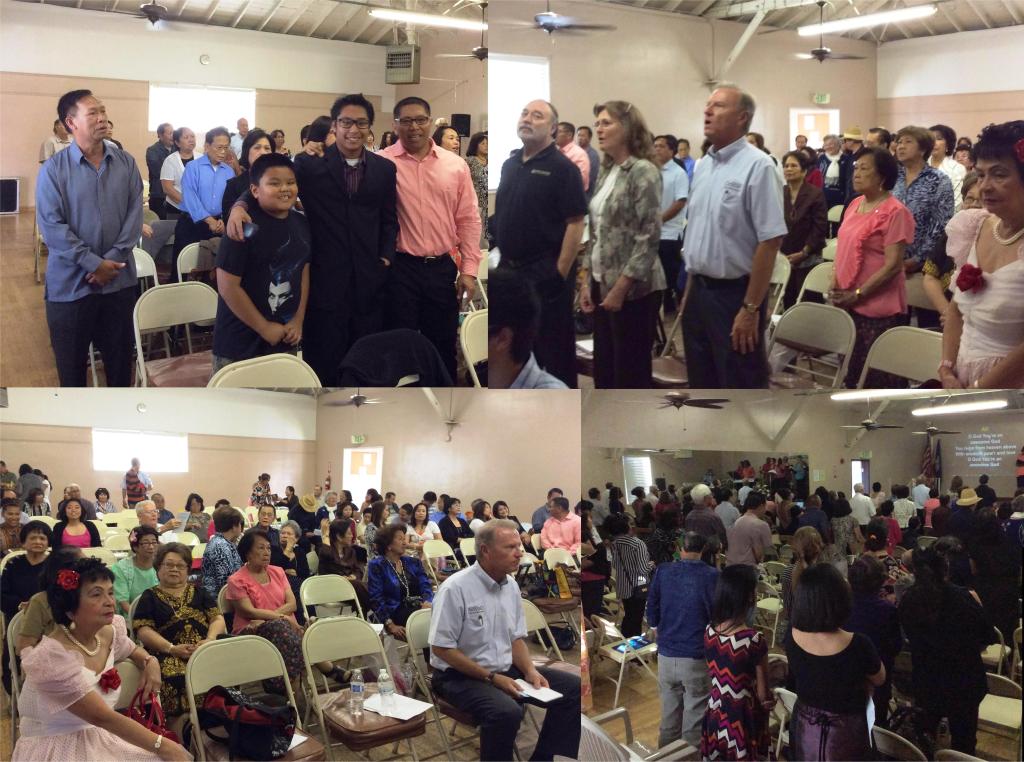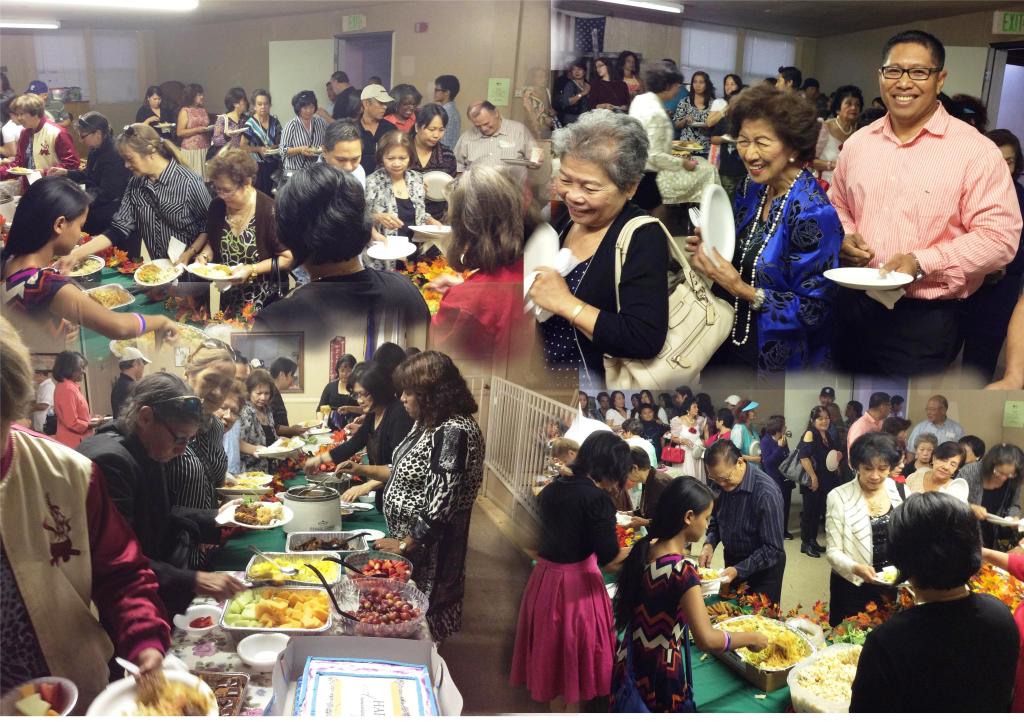Dear Brothers and Sisters in Christ,
 As Gary Deddo points out, when it comes to searching out answers to life’s big questions, it’s vital to begin with the most important question of all: “Who is God?” Doing so reflects the apostle Paul’s teaching that God determines reality, “for in him we live and move and have our being” (Acts 17:28).
As Gary Deddo points out, when it comes to searching out answers to life’s big questions, it’s vital to begin with the most important question of all: “Who is God?” Doing so reflects the apostle Paul’s teaching that God determines reality, “for in him we live and move and have our being” (Acts 17:28).
God’s continuing mission is to help all people live according to that reality—to come into right relationship (communion) with him. This mission begins with God’s own perichoresis, meaning “mutual indwelling.” The word was coined by early church teachers to represent the unique oneness of the triune God. Jesus described it this way: “I am in the Father and the Father is in me” (John 14:10-11; 17:21). The Father’s life is with and in the Son and the Son’s life is with and in the Father. The Father, Son and Spirit are with, in and for each other. The three Divine Persons are so united in being that they act as one, pursuing together a mission to draw humanity (and all the cosmos) into their triune communion.
God calls the church to participate with him in that mission. In Worship, Community and the Triune God of Grace, James B. Torrance put it this way: “Through our union with Christ we share in his communion with the Father and in his mission from the Father to bring others into that communion… The mission of the church is the gift of participating through the Holy Spirit in the Son’s mission from the Father to the world.” In Atonement: the Person and Work of Christ, Thomas F. Torrance put it this way: “Because the church is filled with the one universal Spirit of divine love, it is caught up in the universal movement of that love that ceaselessly flows from God through Jesus Christ out into all the world.”
The problems we see in the world stem from living and thinking in ways not oriented toward God. God, who is love (1 John 4:8) is who we need. If we lived into that reality, most problems would quickly diminish. God, in love, reaches out to draw humanity into communion with himself. Toward that end, he has formed the church to be his representatives in leading creation to worship him as Creator, Reconciler and Redeemer. God calls the church together to receive from him his life with praise, prayer and thanksgiving and then sends them out to the world to pass on what they have received. In that way, the church serves as a living sign that points to the great reconciling and redemptive work that the Father has accomplished in Christ.
The church participates with God in this mission as it leads people to faith in God—a faith that leads them to share in a worshiping community that gathers together then reaches out to the world. In GCI, we describe our participation in that mission as Living and sharing the gospel, which brings forth All kinds of churches for all kinds of people in all kinds of places. Though we are small, God has given us a wide reach. We have churches in jungles, prisons, refugee camps and even a garbage dump. God has made us a church that lives and shares the gospel in all kinds of places!
As churches, our ministries are true participation in the mission of God as they communicate in word and deed the reality of who God is and what he is doing. That reality is good news (gospel) from beginning to end. Sadly, some churches stray from the gospel by falling into one of two ditches. The first is legalism—thinking that the gospel is about a transaction in which we earn something from God. The second ditch is approaching the gospel as an esoteric, mystical system that is inaccessible to outsiders. Those in the first ditch tend to speak of mission in business terms. An example is the health and wealth gospel, which often manipulates people using false hope and guilt. Those in the second ditch often speak of mission using esoteric terms. I’m not referring here to the appropriate use of theological terms, but to the use of strange-sounding, in-speak phrases such as, “The Lord spoke to me.” Though such phrases might make sense to us, they are easily misunderstood by non-Christians and thus tend to obscure the nature of God (see Gary Deddo’s article on the Holy Spirit linked under the Church Development category at left) and unhelpfully complicate (and even obscure) the simplicity of the gospel message that we are called to proclaim.
In times past, many of us spent time in one or the other (and sometimes both) ditches. We erroneously tried to build our fellowship using a transactional, business model. We referred to our ministries as “programs” and our pastors as “college representatives.” Also, we often used esoteric phrases unintelligible outside our fellowship. I recall when one of my neighbors accompanied Tammy and me to church. On the drive home he asked, “Joe, I know what a tithe is, but what is second tithe?” He also asked, “What is the Feast of Tabernacles? and “What kind of restaurant could stay in business serving unclean meat?”
I thank God we’re no longer in those ditches. Today our mission is to live and share the gospel in ways that lead to all kinds of churches for all kinds of people in all kinds of places. I pray we all grow in our participation in that mission. That all our churches have opportunity to do so became clearer to me in a recent conversation with Greg Williams, who in January will become director of GCI-USA Church Administration and Development (CAD). Greg noted that we’ve tended to look at church planting as the responsibility of our Church Multiplication Ministries (CMM) group led by Randy Bloom. CMM has laid for us a solid foundation for church planting. However, rather than looking at one ministry and a small group of people as the focus of our church planting, we need to see that church planting is a fundamental focus of the mission that we all are called to share in. In short, we need to see ourselves as church planters—partners in a church planting movement.
Every congregation, no matter its size, age distribution, financial resources, or other limiting circumstances, can be a partner in this movement. Each can make a valuable contribution. Notice here my emphasis on what we do together on mission—participating as one church family with Jesus as he engages humanity, drawing them to himself. Note also that mission precedes and leads to ministry (but ministry doesn’t always lead to mission). That’s why I want us to emphasize mission. Let’s examine everything we do at the congregational and denominational levels from the viewpoint of mission. Let’s ask: How does this ministry (program, publication, etc.) contribute to sharing in God’s mission to the world?
At times we’ve referred affectionately to our very small, often aging congregations as “legacy churches.” We’ve stopped doing so because it implies that they don’t have a meaningful, ongoing part in the mission of God. But that’s not what we believe. We value every congregation, no matter how small and no matter the age of its members. We value every member, no matter their age or other limiting circumstances. We believe that each congregation and every member can play a meaningful, important part in what God is doing to make of us a church planting movement. In fact, he already has! Note what Greg wrote recently:
Our U.S. congregations already are partners in this church planting movement through the income they provide to the denomination through our apportionment system. A growing number also partner through participation in a church planting network and donations to our GCnext domestic mission fund. Others are providing a home base for one of our interns. Some are directly starting new churches (serving as a “mother church” in the movement). Others help staff our Generations Ministries camps and mission trips where emerging leaders are helped to hear God’s call into mission. All are included. All have a part. All are important.
Greg and his team recently came up with a guiding motto for CAD: We are a team of churches and ministries partnered together in a church-planting movement. This excites me, because it speaks to our union and communion with the triune God, and our participation in what Jesus is doing in the power of the Spirit to fulfill the Father’s mission to the world. I’m confident this church planting focus will excite you too, as together we participate in the mission of God.
Living in his reality,
Joseph Tkach
P.S. This issue focuses on our calling to participate in God’s mission to the world. Gary Deddo addresses this topic as he concludes his series on the Holy Spirit, and note Dan Rogers’ comments on the topic in a video at http://youtu.be/oXF4uMNZb0k. Concerning our progress toward being a church planting movement, I recently participated in the first anniversary celebration at Grace Communion Fellowship. This GCI congregation was planted in Southern California a year ago by Angie and Saddie Tabin, with active participation from CMM and multiple GCI congregations partnered in one of our church planting networks. About 100 people attended the anniversary celebration—here are some pictures:





